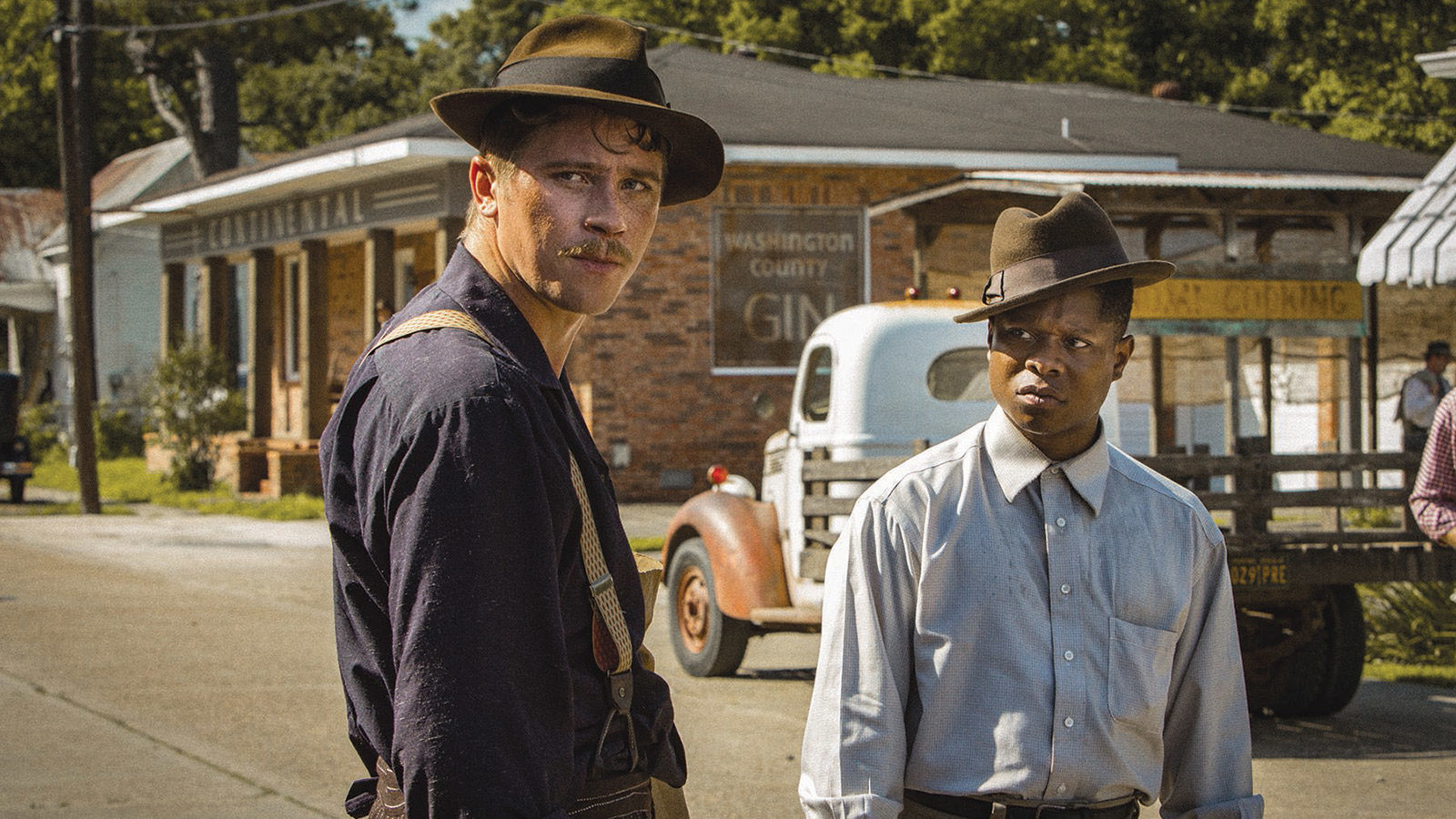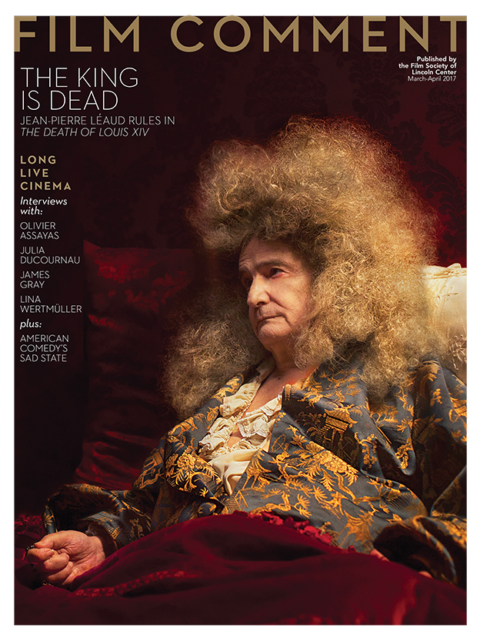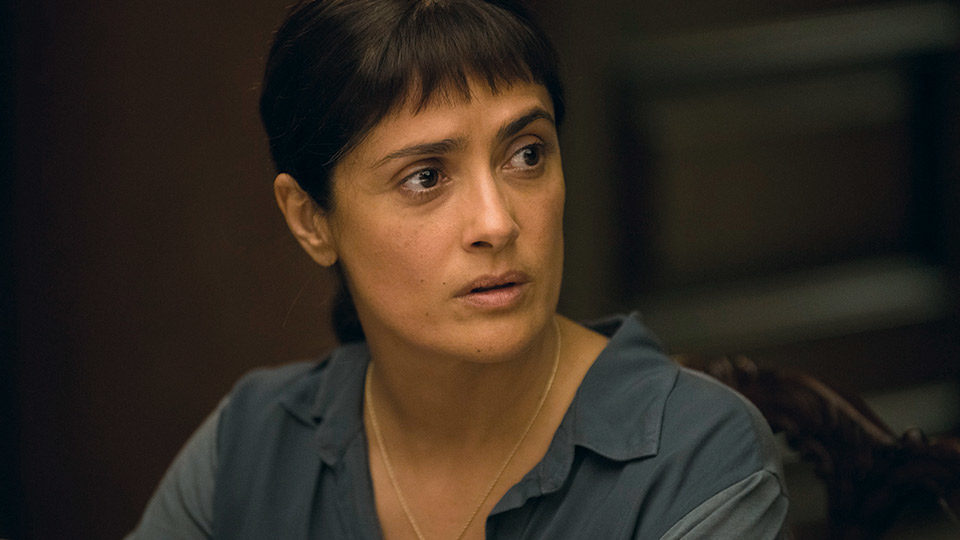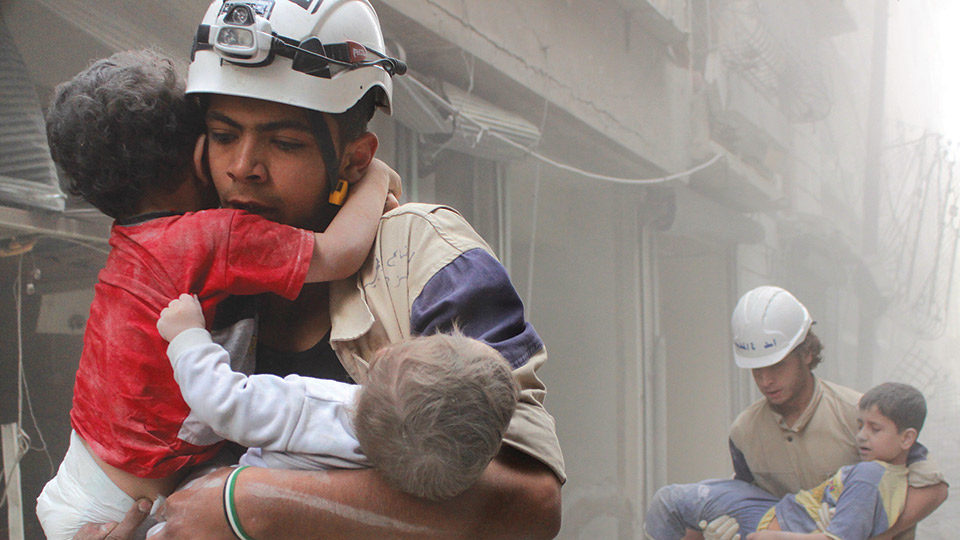
Trails of Destruction
It was unusually cold—it snowed almost every day—but 5,000 strong, we marched down Park City’s Main Street on the first Saturday of the 2017 Sundance Film Festival to proclaim our vision of America. And then we settled into theaters to watch nine days of movies about the destruction of the ecosystem and the suffering of people within the U.S. and abroad. Many of these same movies were also about resistance and love. Perhaps one could have found the usual rom-coms, but I didn’t because I wasn’t looking. On the opening day, Robert Redford gave his standard speech about Sundance (the Institute and the Festival) having a commitment to diversity and independence, but not to politics per se. Which he needs to do: Sundance is a nonprofit located in Utah, and while some of its supporters are progressives, others are simply pragmatic. The festival brings a lot of business to the state. Redford’s position always has been that Sundance’s focus is on the filmmakers and the stories they want to tell. But that begs the question of selection—something that festival director John Cooper, director of programming Trevor Groth, and their staff did exceptionally well this year. Out of roughly 14,000 feature and short film submissions, a few hundred were chosen, many of them notable for the urgency of their address.

The American films that stick with me a few weeks after Sundance ended are Jonathan Olshefski’s documentary Quest (a New Directors/New Films selection); Dee Rees’s Mudbound (a Netflix potential awards season release); Travis Wilkerson’s Did You Wonder Who Fired the Gun?; and perhaps most of all, Miguel Arteta’s Beatriz at Dinner (a Roadside Attractions acquisition), which seems like a biting social satire until it pulls the rug out from under you and reveals that it has been a tragedy all along. Beatriz (a transcendent Salma Hayek) is a Latina holistic-medicine provider who works in a large Southern California cancer center. She heals by taking the pain of others into herself. This ability goes beyond empathy, and she nears the breaking point when a neighbor kills the white goat she raised from infancy. But what pushes her over the edge into fury and despair is an encounter at a dinner party with a predatory, ignorant, self-congratulating, racist real-estate developer (a suitably despicable John Lithgow). Need I say that he bears a certain resemblance to the occupant of the White House whose inauguration took place three days before Beatriz at Dinner’s premiere? I also made an association to an earlier moment in history: the legendary production of Jean Anouilh’s adaptation of Sophocles’s Antigone, staged during the Nazi occupation of France. Beatriz and Antigone refuse to compromise their morality in order to survive a fascist regime; think of them as saints or tragic heroines. Arteta’s direction, Mike White’s script, Hayek’s performance, and Wyatt Garfield’s cinematography, which punctuates the ugliness that money can buy with magic-realist images of the natural world, make Beatriz at Dinner out of the ordinary and spot-on.
Similarly affecting, Rees’s Mudbound is an ambitious, sprawling melodrama set in Mississippi during the World War II era. Two families, one black (the sharecroppers) and one white (the owners), work the same miserable piece of farmland. Drawing from Hillary Jordan’s novel of the same name, Rees has made a film that is rich and historically accurate in detailing daily life and social dynamics in a virulently racist failed economy. The standouts in a terrific ensemble cast are Carey Mulligan and Mary J. Blige as the mothers who bond out of need and empathy for each other’s struggles, and Garrett Hedlund as Mulligan’s brother-in-law and Jason Mitchell as Blige’s son, both men who survive the war and return with a knowledge of a world beyond racial hatred and fear. Rees’s directorial control is evident in both intimate scenes and big action sequences.

Beatriz at Dinner
The history of racism in the South is also explored in Did You Wonder Who Fired the Gun?, presented in the experimental New Frontier section as a film/performance combo with live narration by the piece’s creator. Wilkerson’s most personal and unsparing work, it’s an investigation into the murder of a black man by his great-grandfather, an Alabama white supremacist who was never tried for the crime. The film is collaged from family photos and 8mm home movies, newspaper accounts, letters, interviews, and Wilkerson’s live-action footage, recorded when he returned to the scene of the crime not only to investigate the murder but to find traces of Bill Spann, the victim, so that his name can be written into history.
The racist-in-chief appears on TV toward the end of Quest, a remarkably intimate portrait of the Rainey family of North Philadelphia, who seem to have welcomed Olshefski and his camera into their home for nine years out of the kindness and generosity of spirit that infuse this nearly pure vérité film and made it the festival’s most inspiring gift. Christopher “Quest” Rainey has a part-time job delivering supermarket flyers, but he’s dedicated to the home recording studio where he welcomes aspiring neighborhood rappers to open-mike sessions. His wife Christine’a, aka “Ma Quest,” is similarly community-oriented and works in a women’s shelter. Their daughter P.J. grows from a lively 8-year-old to a high school graduate during the course of this 105-minute film, and when something traumatic happens to her, half the audience at the screening I attended gasped “Oh no!” Quest opens with the 2008 Obama election, and his eight-year presidency is a source of pride and hope, but it doesn’t raise their income above the poverty line. Nevertheless, when Ma Quest, watching Trump’s condescending “What do you have to lose?” pitch on TV, quietly answers “You don’t know anything about us.” I could barely stop myself from shrieking that he isn’t fit to lick her or any of any of the Raineys’ shoes.
Quest was not the only film about African-American determination and resilience. Michael Larnell’s Roxanne Roxanne (a Neon acquisition) showcases an ebullient, tough breakout performance by Chanté Adams as the teenage Roxanne Shanté, the Queensbridge rapper whose mid-1980s hit “Roxanne’s Revenge” brought her a brief moment of fame. In Matt Ruskin’s more harrowing biopic Crown Heights (an Amazon acquisition), a compelling Lakeith Stanfield stars as Colin Warner, who spent 21 years in prison for a crime he didn’t commit, finally winning release thanks to the devoted effort of his best friend Carl King (Nnamdi Asomugha). TIME: The Kalief Browder Story, Jenner Furst’s episodic documentary produced for Spike TV, exposes the criminal injustice system and the particular hell of Rikers Island through the story of Kalief Browder, who was wrongfully arrested at age 16 for stealing a backpack, refused to cop a plea, endured three torturous years in jail without ever coming to trial, and was released without charges but with such severe PTSD that he committed suicide a year later. I have a problem with Furst’s punched-up style: the footage—of a traumatized Browder, of brutality inside Rikers, and of the interrogation after his release by lawyers for a system determined to avoid being sued for unlawful treatment even if it meant destroying his spirit—needs no editorializing.

Cries from Syria
More than ever an international festival, Sundance programmed three documentaries on the ravaging of Syria: Evgeny Afineevsky’s Cries from Syria (showing on HBO this month); Matthew Heineman’s City of Ghosts (an Amazon acquisition); and Feras Fayyad’s Last Men in Aleppo, which won the World Documentary Grand Jury Prize on the same weekend that Trump issued his travel ban, attempting to bar all Syrian refugees from the U.S. indefinitely. All three films are essential viewing. Cries from Syria gives an overview of the conflict from 2011 almost to the present, but it’s sufficiently specific to make my Sundance housemates donate to the White Helmets volunteer rescue organization, and for all of us to understand that when the U.S. starts talking (as is happening right now) about sending American troops to Syria to help the Russians destroy ISIS, that’s just cosmetics. What it’s really about is Russia and the U.S. making sure Assad cuts them in on new oil and gas pipelines across Syria. Shot by local photographers and TV cameramen, Last Men in Aleppo follows the White Helmets during the last months of that bombed-out city’s existence, as they go about their heroic task of scanning the skies for Russian and Syrian bombers, racing in jury-rigged trucks to newly collapsed buildings, and digging through the rubble to pull out the few living and many dead. In the evenings they worry about getting their own families out of Syria and about the family members who are already refugees in Turkey and Western Europe. They are some of the most amazing people you will ever see on the screen. Cameras, cell phones, and the Internet are their lifelines, no less so in City of Ghosts for the members of Raqqa Is Being Slaughtered Silently (RBSS), a group of journalists working undercover to get images and information out to the world about what has happened to their city since ISIS invaded and made Raqqa the capital of the Islamic State. As much as they try to remain anonymous, ISIS has discovered some of their names and murdered their close relatives, and even some RBSS members themselves after they went into exile.
A corollary to the three films shot in Syria is The Good Postman by Finland-based filmmaker Tonislav Hristov. A pure documentary that I nearly mistook for fiction—although it eschews currently cool hybrid strategies—it is set in Great Dervent, a village of less than 50 mostly elderly inhabitants in Bulgaria near the Turkish border. Attempting to reach Western Europe, Syrian refugees follow a route through the lush surrounding forests and sometimes camp overnight in empty buildings. The local postman decides to run for mayor on a platform of inviting the refugees to stay. The village would come alive again, the refugees could farm the land, and their children could go to school. His opposition is the current do-nothing middle-aged female mayor and a drunken middle-aged former communist turned rabid nationalist. But the election itself, though it mirrors a worldwide conflict, takes a backseat to the moral quandary of the postman and the terrible loneliness he feels. Despite the absence of externalized drama, The Good Postman is thoroughly engrossing, and abundantly expressive, thanks to Orlin Ruevski’s elegantly composed wide-screen cinematography, Petar Dundakov’s score, and the beautiful face of the good postman himself.
Keep your eyes open for Tarik Saleh’s The Nile Hilton Incident (the World Cinema Grand Jury Prize winner), a very political policier set in Cairo just before the 2011 uprising, and Marianna Palka’s Bitch, in which a desperately overburdened wife and mother of four takes on the persona of a large, hyperaggressive dog. And most of all, check the Netflix schedule for Joe Piscatella’s doc, Joshua: Teenager vs. Superpower. In a Sundance that almost entirely reflected devastation everywhere in the world (I haven’t even mentioned the 14 films in the New Climate section), Joshua Wong was one of the only signs of hope. The Hong Kong student was barely pubescent when he founded “Scholarism,” a high-school activist group that took to the streets to fight the imposition by China of a new curriculum, which Wong argues is Communist Party brainwashing. Tiny protests grew into a movement of tens of thousands who, in 2014, shut down Hong Kong’s Financial District for 79 days. Joshua has much to teach the resistance in the U.S. Netflix promises to bring him here when it premieres the film.
Amy Taubin is a contributing editor to Film Comment and Artforum.







